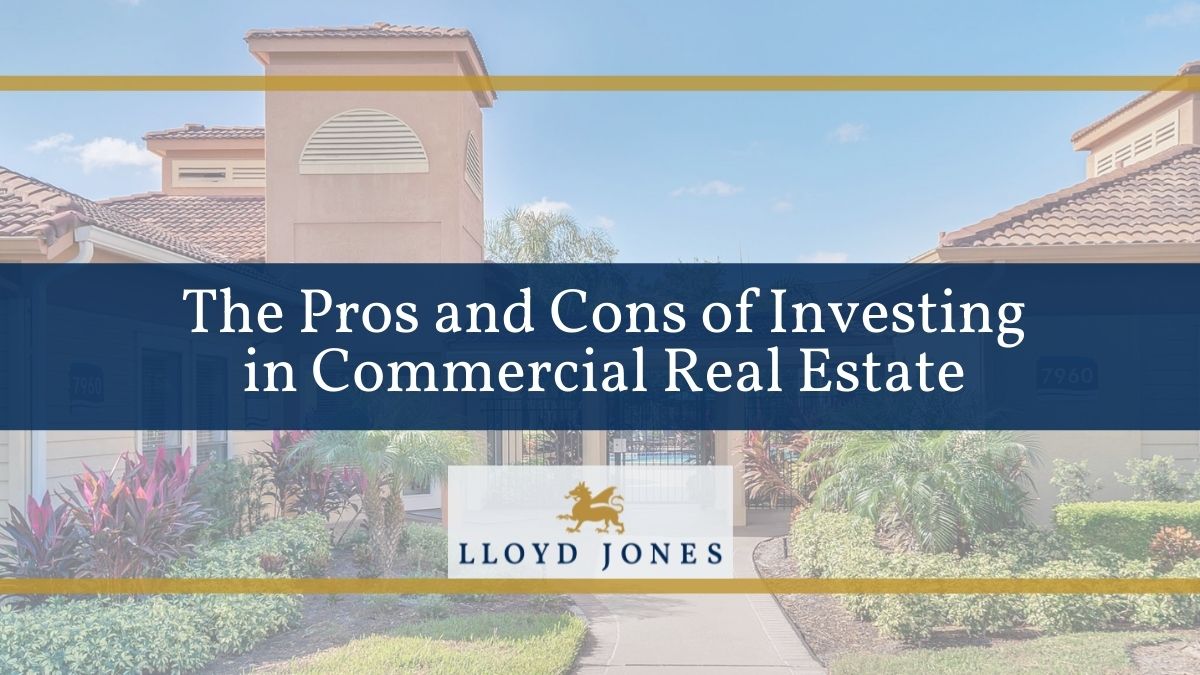The Pros and Cons of Investing in Commercial Real Estate

The Pros and Cons of Investing in Commercial Real Estate: A Deep Dive
Commercial real estate (CRE) has long been a staple in diversified investment portfolios. From office buildings to retail spaces and industrial warehouses, CRE offers a unique blend of potential for high returns and tangible assets. However, as with any investment, it’s crucial to weigh the pros and cons before diving in.
Pros:
- Potential for High Returns: CRE offers the potential for substantial capital appreciation and steady income streams through rent. While returns can fluctuate, historically, CRE has outpaced inflation and provided attractive returns.
- Tangible Asset: Owning physical property provides a tangible asset, offering a sense of security and control compared to more abstract investments like stocks.
- Diversification: Adding CRE to a portfolio can diversify holdings, reducing overall risk by mitigating market volatility and providing a different asset class.
- Long-Term Stability: CRE investments often hold value over long periods, providing a sense of stability and potentially generating passive income for years to come.
- Tax Advantages: Tax benefits can be derived from depreciation deductions and potential tax credits, making CRE a tax-efficient investment for some investors.
Cons:
- High Entry Costs: Initial investment costs for CRE can be substantial, requiring a significant capital outlay. This can be a major barrier for individual investors.
- Illiquidity: CRE is generally considered a less liquid asset compared to stocks. Selling a property can be time-consuming and may require significant effort and negotiation.
- Management Requirements: Managing a commercial property requires time, expertise, and resources. From tenant relations to maintenance and legal compliance, the workload can be significant.
- Market Volatility: CRE is susceptible to market fluctuations, influenced by economic conditions, interest rates, and local supply and demand. Unfavorable conditions can lead to decreased occupancy rates and lower rental income.
- Risk of Vacancy: Finding and retaining tenants is crucial for generating income. Vacant properties can significantly impact returns and require costly upkeep.
Who Should Consider Commercial Real Estate Investment?
Commercial real estate can be a viable investment option for:
- High-net-worth individuals: Those with a substantial net worth can comfortably afford the initial investment and potentially leverage their capital for greater returns.
- Sophisticated investors: Investors with experience in real estate and a solid understanding of market dynamics are better equipped to navigate the complexities of CRE.
- Long-term investors: CRE investments thrive on a long-term perspective. Patience and a willingness to ride out market cycles are essential for success.
Conclusion:
Investing in commercial real estate presents both opportunities and challenges. While the potential for high returns and diversification is enticing, it’s crucial to carefully consider the risks, including high entry costs, illiquidity, and market volatility. Before investing, investors must thoroughly assess their financial goals, risk tolerance, and capacity to manage the complexities of commercial real estate ownership. By carefully navigating the pros and cons, investors can make informed decisions and potentially unlock the long-term benefits of this asset class.

